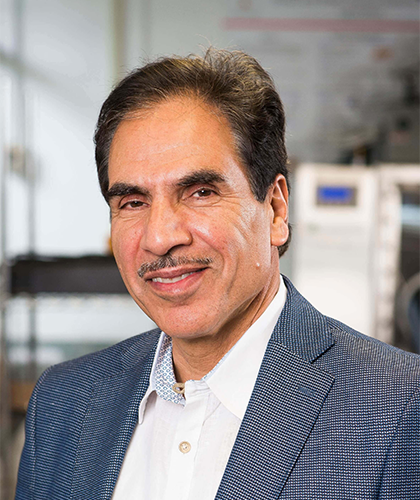The Small and Smart Thermal Systems Laboratory (S2TS) at the University of Maryland, College Park, is engaged in cutting edge research in the fields of advanced heat and mass and thermal management systems. The research at S2TS is of particular significance to applications in advanced energy conversion, advanced heat/mass exchangers, process intensification, electronics cooling, and innovative design and manufacturing of components for energy conversion systems. Through innovative research and technology development activities we strive to anticipate the needs of our sponsors and exceed their expectations. Our research projects also include innovative and advanced manufacturing techniques for energy conversion and thermal management applications. This includes emerging fields such as additive manufacturing and the use of micro and nano systems for process intensification and optimization.
Since its inception in 1993, the S2TS Laboratory has been involved in a number of basic and applied studies in the field of active and passive heat transfer augmentation techniques, mass transfer, and energy conversion. Over the years, the Laboratory has successfully developed the technical know-how and the knowledge base critical to the incorporation of emerging technologies into practical applications ready for commercial use.
Through its affiliation with the Computer Aided Life Cycle Engineering (CALCE) Center and the Center for Environmental Energy Engineering (CEEE), the laboratory is dedicated to developing advanced heat exchangers and smart thermal management techniques as solutions to future thermal systems. Our Laboratory may be best known for its contributions to development of small and smart thermo fluidic systems through the Electro Hydrodynamics Technique (EHD). The EHD technique utilizes an inducted electric field to promote and manipulate fluid flow and thermal fields in a given application. Among other advantages, EHD may be particularly suitable for applications in which active (online/on demand) control of a process is necessary.
With the aim of creating more sustainable technology to meet industrial requirements, the Laboratory now provides a multitude of advantages in various fields, such as the ability to spot-cool high heat flux regions, enhance macro-level performance by optimization of micro-level heat transfer, and enable system-level miniaturization and integration.
Location: AHX-PI Laboratory, 3131-3135 Kim Engineering Building

|
Michael OhadiMinta Martin Professor301-405-5263 | ohadi@umd.edu Profile |